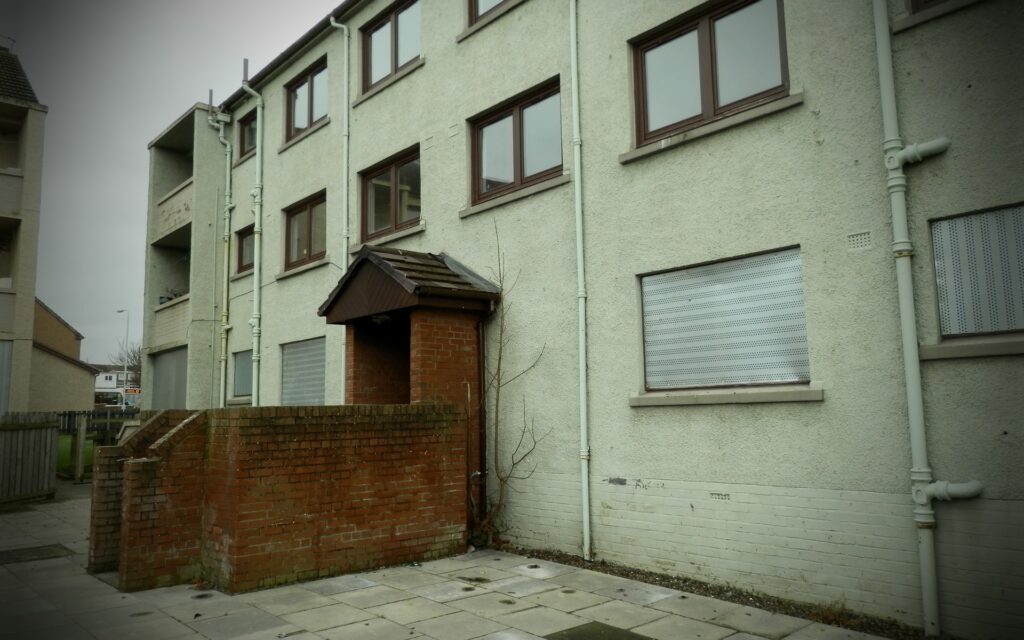 Migration
Migration 
As new regulations are proposed in England to remove safety protections from asylum seeker accommodation, Isata Kanneh from the Bevan Foundation’s Access to Justice Project, reflects on what the effects might be in Wales.
The UK Government is set to introduce regulations which will exempt landlords for two years from the need to obtain a House in Multiple Occupation (HMO) licence. While the Guardian stated that this would apply in both England and Wales, housing law is devolved and the regulations will not, in fact, have practical effect in Wales. Still, the move may have implications for asylum seeker housing across the UK.
The new regulations will apply only to properties housing asylum seekers. They are aimed at dispersal accommodation, where people are sent, without choice, to local authority areas across the country. This housing is controlled by the Home Office and managed by bulk contract providers: in Wales, the contract is held by Clearsprings Ready Homes. The stated aim of the regulations is to remove ‘barriers’ caused by the licencing requirements so that people can be dispersed more quickly into asylum accommodation. No formal consultation has been carried out, and the regulations have been introduced very quickly.
What ‘barriers’ are the new regulations trying to remove?
Houses in Multiple Occupation (HMOs) are rented homes with shared facilities, such as a kitchen or bathroom, occupied by people from different households. Each HMO lived in by five people or more requires a licence from the local authority. The existing law on HMO licensing is the same in England and Wales.
To get a licence, a landlord has to show that the house, its size, and its facilities, are ‘suitable’ for the people who live there. There are minimum room sizes and the landlord must not have criminal convictions for fraud, violence, dishonesty, or discrimination. They must also not have a history of breaching housing or tenant law. The landlord must show a gas safety certificate, install and maintain smoke alarms and have safety certificates for electrical equipment. These are all very basic safety checks.
Regulating safety is especially important with HMOs because the more people that can be fitted into a property, the more profits rise. This is an incentive to unscrupulous landlords to cut corners and compromise on safety. HMOs are often let to people with complex care needs and who have difficulty maintaining a tenancy. People in these situations have little choice and are not able to turn down properties when they are unsafe. The new regulations are extremely dangerous for people seeking asylum, but they also send the message that safety regulations for HMOs are not essential. The facts show that they are.
Fire deaths and serious concerns
The size of HMOs and the number of occupants greatly increases fire risk. Before HMO licencing was brought in, more than three people a week died in fires in HMOs. As the new regulations have been debated in parliament, MPs have raised serious concerns about the risk of fire, the removal of minimum standards, and the impacts on families and children. In the House of Lords, Baroness Taylor of Stevenage called the proposals “a potential catastrophe”.
The standard of asylum seeker accommodation is already notoriously low. Inspections by the Independent Chief Inspector of Borders and Immigration in 2018 and 2021 found evidence of vermin infestations, leaks, damp, faulty boilers, a lack of cleanliness, unsuitable conditions, and a lack of accountability for low standards and for health and safety. This does not instill confidence that standards and safety will be maintained in the absence of licensing.
Implications for Wales
Home Office dispersals to asylum accommodation across the UK, including Wales, are often done with minimal consultation with local authorities. When 87 asylum seekers were placed in a hotel in Snowdonia last year, it was claimed that the Home Office had not followed proper processes and had left the Council to pick up a large bill for services to 15 young people identified among the residents. Growing objection to the use of hotels as led to some authorities challenging the planned use of hotels by issuing Planning Contravention Notices or arguing that it constitutes a change of use to an HMO. Some have sought injunctions through the courts.
Exempting HMO landlords from the licensing requirements could be an attempt to sidestep such legal challenges from local authorities. This could have a knock-on effect in Wales. Large-scale housing of asylum seekers without local consultation or proper consideration of people’s needs may become easier and cheaper for the Home Office in England than it is in resistant local authorities in Wales. That could result in political capital being made where local authorities seek to enforce regulation, Criticisms of ‘lefty lawyers’ and inconvenient human rights have been prevalent in political rhetoric around immigration policies for some time. Could attacks on devolved law and legal rights in Wales be next on the agenda?


